Jordan Wright
October 28, 2014
Special to The Alexandria Times
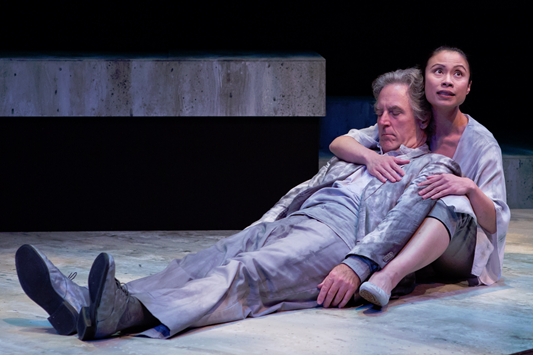
(L to R) John Lescault and Tuyet Pham in Our War – Photo by Teresa Wood.
Arena Stage’s Artistic Director, Molly Smith, describes the evolution of Our War as “a synthesis of art, scholarship and community”, further defining it as “the extraordinary collaboration between universities, theaters and regions that were differently affected by the Civil War.” As part of the current National Civil War Project this coming together with other prestigious arts groups, both local and national, affords the audience illuminating vignettes told by the imagined voices of those whose lives were affected during and after the war.
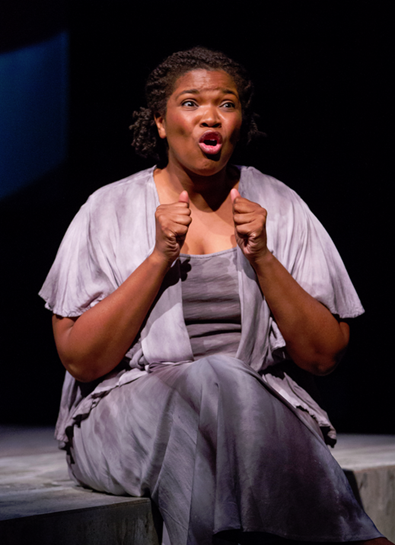
Kelly Renee Armstrong in Our War – Photo by Teresa Wood.
Smith has selected monologues from twenty-five leading American playwrights commissioned for the project, dividing their works into “Stars” and “Stripes” nights. On press night we were treated to a reading by Supreme Court Justice Ruth Bader Ginsburg whose star turn was in the voice of a slave whose son is called to go to war in “That Boy” written by Pulitzer Prize-winning dramatist David Lindsay-Abaire. There are six members in the ensemble – – Kelly Renee Armstrong, Ricardo Frederick Evans, John Lescault, Tuyet Thi Pham, Lynette Rathnam and Sara Waisanen who portray the other characters for a total of eighteen readings each night.
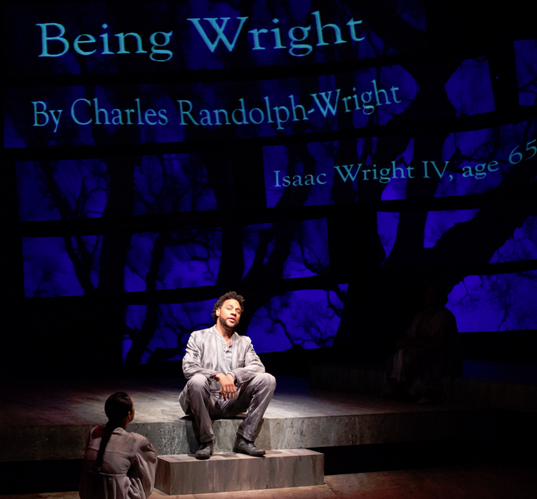
Ricardo Frederick Evans, with Tuyet Pham, in Our War -Photo by Teresa Wood.
In addition Arena has cast over 30 notable leaders from the DC region to perform a reading throughout the run of the show. Among them are DC Mayor Vincent Gray, Virginia Congressman Jim Moran, Chris Matthews of MSNBC’s Hardball, WAMU radio host Diane Rehm, NBC reporter Tom Sherwood and Rev. Dr. Howard-John Wesley, Senior Pastor of Alexandria’s Alfred Street Baptist Church.
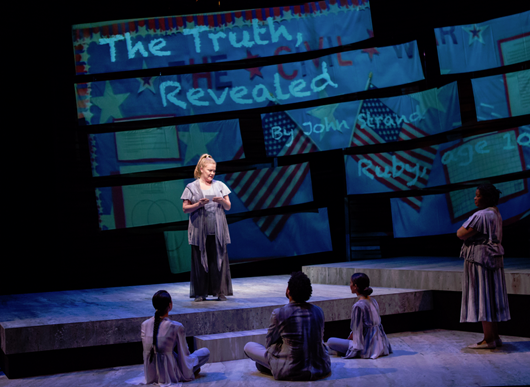
Sara Waisanen and the company of Our War – Photo by Teresa Wood.
The first monologue performed by Waisanen and written by John Strand, is called “The Truth, Revealed”. It is in the voice of ten year-old Ruby, a student of Bull Run Elementary who is reading from her class assignment. Little Ruby has been indoctrinated at a tender age to espouse the Southern side of the story, blaming Abraham Lincoln for the killing of 618,222 soldiers. Ruby likes numbers. She reminds us that there were 4,000,000 slaves when the war started and its cost was $5.2 billion. To support her theory she calls John Wilkes Booth a hero, asserts slavery was important to a successful economy, and quotes Rand Paul to back her up, stating “You can’t pass a law to make people change what’s in their hearts.”
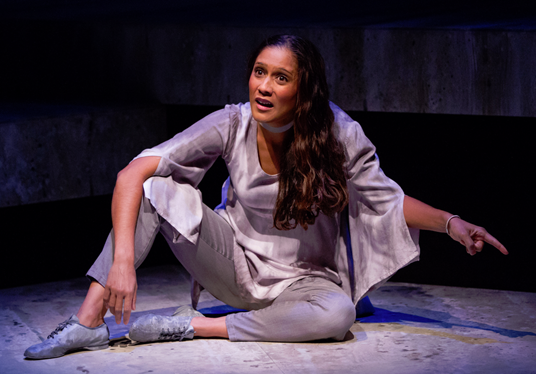
Lynette Rathnam in Our War – Photo by Teresa Wood.
In another, “Moo”, written by Iditi Kapil, Rathnam channels an Hispanic female soldier who enlists in the U. S. Army to gain a foothold on citizenship while dreaming of becoming an American pop singer. “It’s never been free. It’s always been on someone’s back,” the soldier acknowledges of war’s costs and immigrants’ participation in our wars. It’s a sassy, street-smart, low-rider delivery that Rathnam nails to a tee.
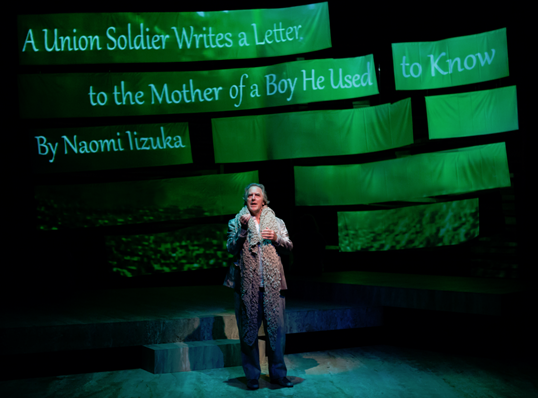
John Lescault in Our War – Photo by Teresa Wood.
Each powerfully expressed and richly textured piece relates a story from the shared experience of the American Civil War – – some are set in modern day, others come from the battlefield. There are a myriad of perspectives from African-American, Irish and Asian to American Indian and early White American settlers, including an ironic tale from a homesteader’s descendent (written by Samuel D. Hunter and delivered masterfully by Lescault) who is asked to dedicate a shopping mall on the former property of his great-great grandfather.
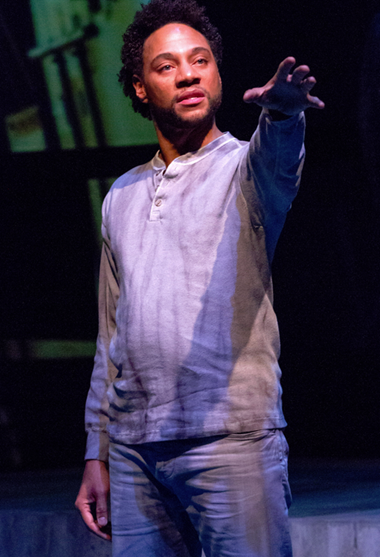
Ricardo Frederick Evans in Our War – Photo by Teresa Wood.
Evans gives a moving performance as a soldier from Guatemala in “Fourteen Freight Trains” written by Maria Agui Carter. The first soldier to die in Iraq, he crossed the borders to come to America as an orphan. It is an earth-moving tale of a young boy who reminds us of the immigrants, illegal or not, who fought our wars and bought the line, “liberty and justice for all”.
In another, The Grey Rooster” by Lynn Nottage, Evans takes on the character of a Kentucky plantation owner’s slave, a man who made bourbon and owned a champion, fighting gamecock trained by Evans’ character. In it he reminds us that masters often required their slaves to go to war in their place.
Highly recommended.
Through November 9th at Arena Stage, 1101 Sixth St., SE, Washington, DC 20024. For tickets and information call 202 488-3300 or visit www.ArenaStage.org.